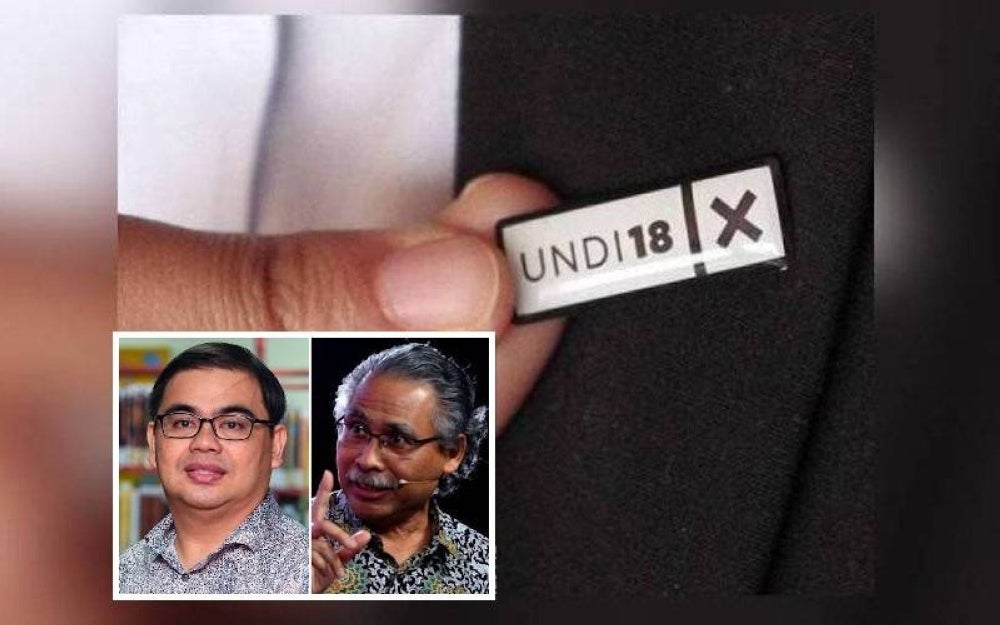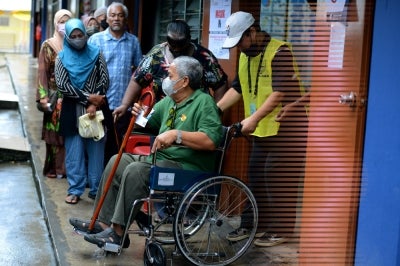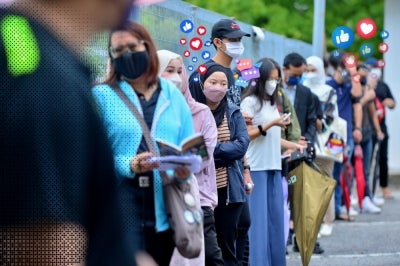Undi18's impact is still unclear post-Johor

SHAH ALAM - With limited data from the recently concluded Johor state election, preliminary observations show that Undi18 had failed to create a significant impact on the Johor polls results.
However, experts said this does not mean Undi18 will not bring meaningful changes to politics in the future.
The state elections - which had been conducted during the peak of the Omicron wave and immediately after the implementation of Undi18 - may not reflect the true situation.
Associate Professor Dr Azmi Hassan said the overall assumption that the Johor polls voters turnout was extremely was incorrect.
Azmi, who is a Senior Fellow of the Nusantara Strategic Research Academy, said the perception was that many did not go out to vote but in reality, this may be different.
"Statistics show that only 54.92 per cent of voters had gone out to cast their votes in Johor. We say this is a low turnout because we associate it with the Melaka or Sarawak state election.
"The problem is Undi18 was not implemented during the Melaka and Sarawak polls but in the case of Johor, there are an additional 750,000 voters due to Undi18 legislation," he said.
Based on the Election Commission's (EC) electoral roll on January 14, 5.8 million Malaysians aged 18 and above as of Dec 31 have been automatically registered as new voters when Undi18 took effect.
This led to more than 750,000 new voters in Johor, bringing the total number of voters in the state to about 2.5 million, from 1.8 million in the 14th General Election (GE14).
The vast majority of new voters are those who are already 21 years old, but have not registered before.
The turnout in GE14 in Johor was 83 percent, but this only included about 1.5 million votes.
Although the turnout for the Johor polls on March 12 was only 54.9 per cent but the fact was a total of 1,426,573 votes were cast in total, which was just slightly lower than the previous election.
Azmi said many individuals aged 21 and above who had not been registered previously but now eligible to vote automatically did not go out to vote, and the percentage was lower due for this group.
He opined that Barisan Nasional (BN) benefited the most from the Undi18 in Johor when new voters did not go to the polls, while they already had existing hardcore supporters who went out to vote.
Azmi, however, said among the reasons that contributed to the drop in votes was due to working abroad or even in neighbouring country, Singapore.
“During a pandemic, to return to your hometown just to vote requires a lot of sacrifices. I think this could be the reason why many youths did not go out to vote, ”he said.
Meanwhile, Universiti Malaya socio-political analyst Dr Awang Azman Awang Pawi said a field study during the state election campaign found that many Undi18 voters were less literate and lacked understanding of the current political situation.
"Only about 15 to 20 per cent are sensitive to the current political situation," he said, adding that the 18 to 21-year old youth cohort was only about six percent of the electoral roll in Johor.
He said BN benefited largely from this as many of the Undi18 voters were still influenced by the political leanings of their parents.
This, he said, was a major advantage to Umno as Johor had the biggest number of members than any other state in the country.
Download Sinar Daily application.Click Here!














